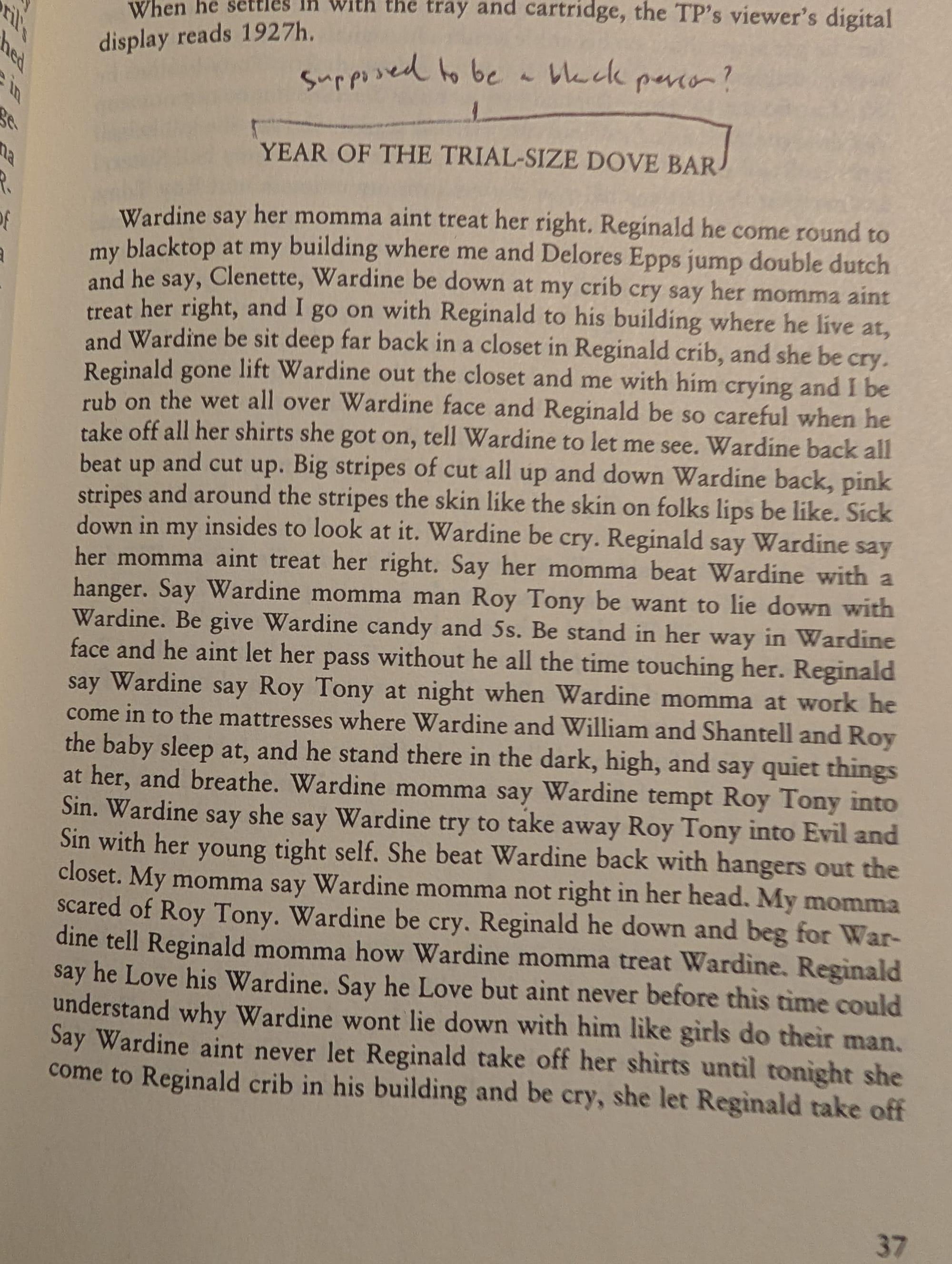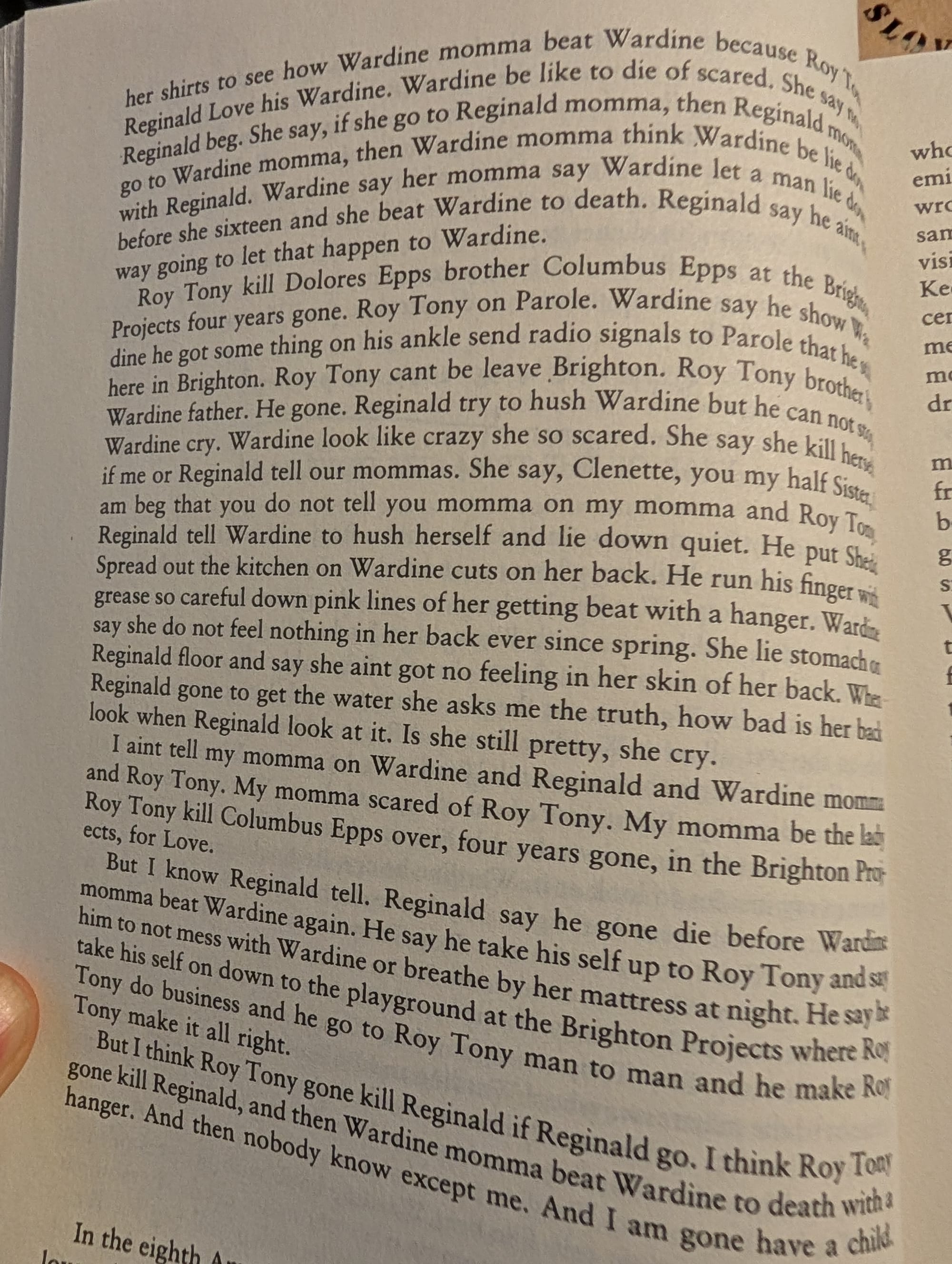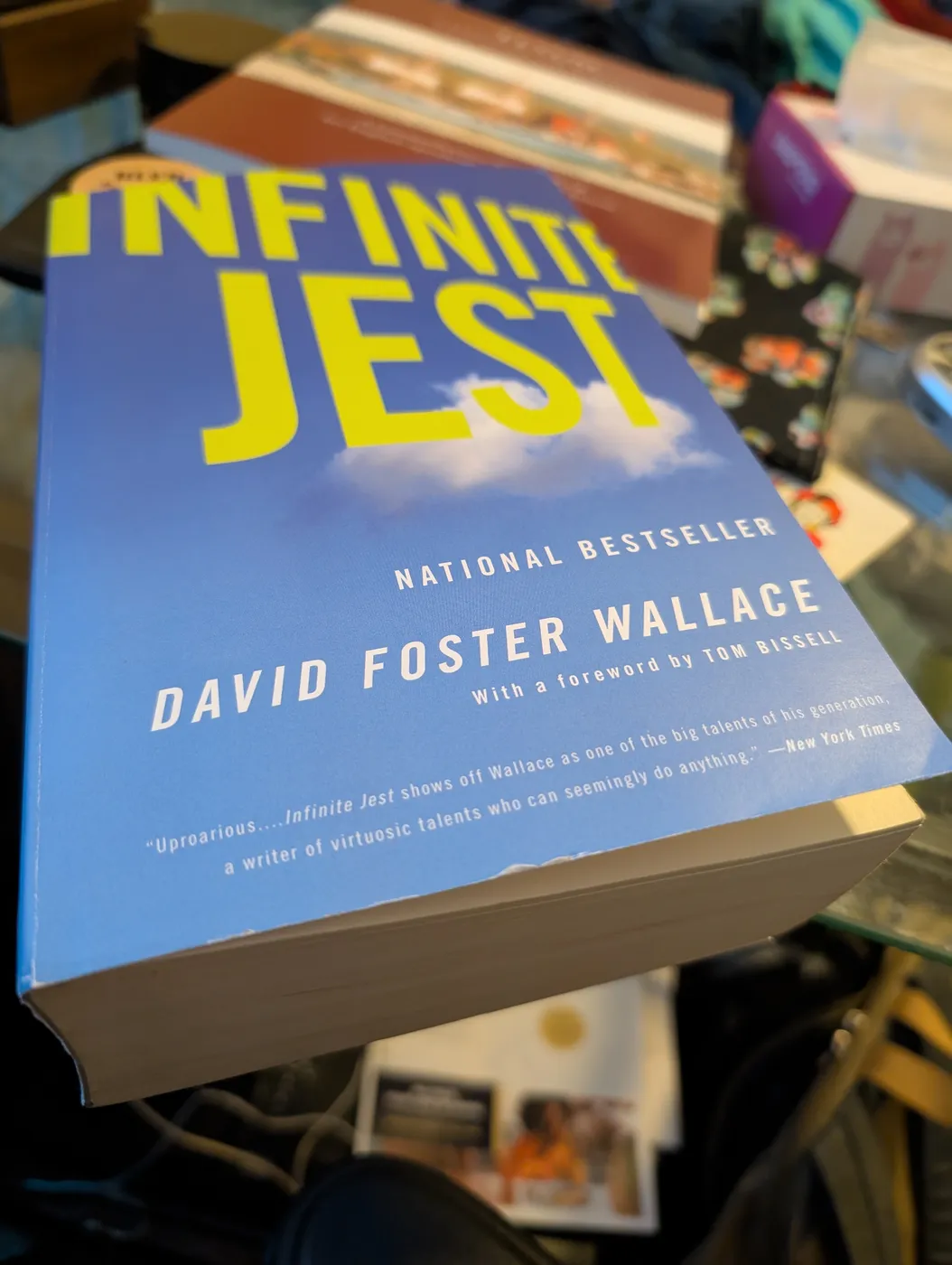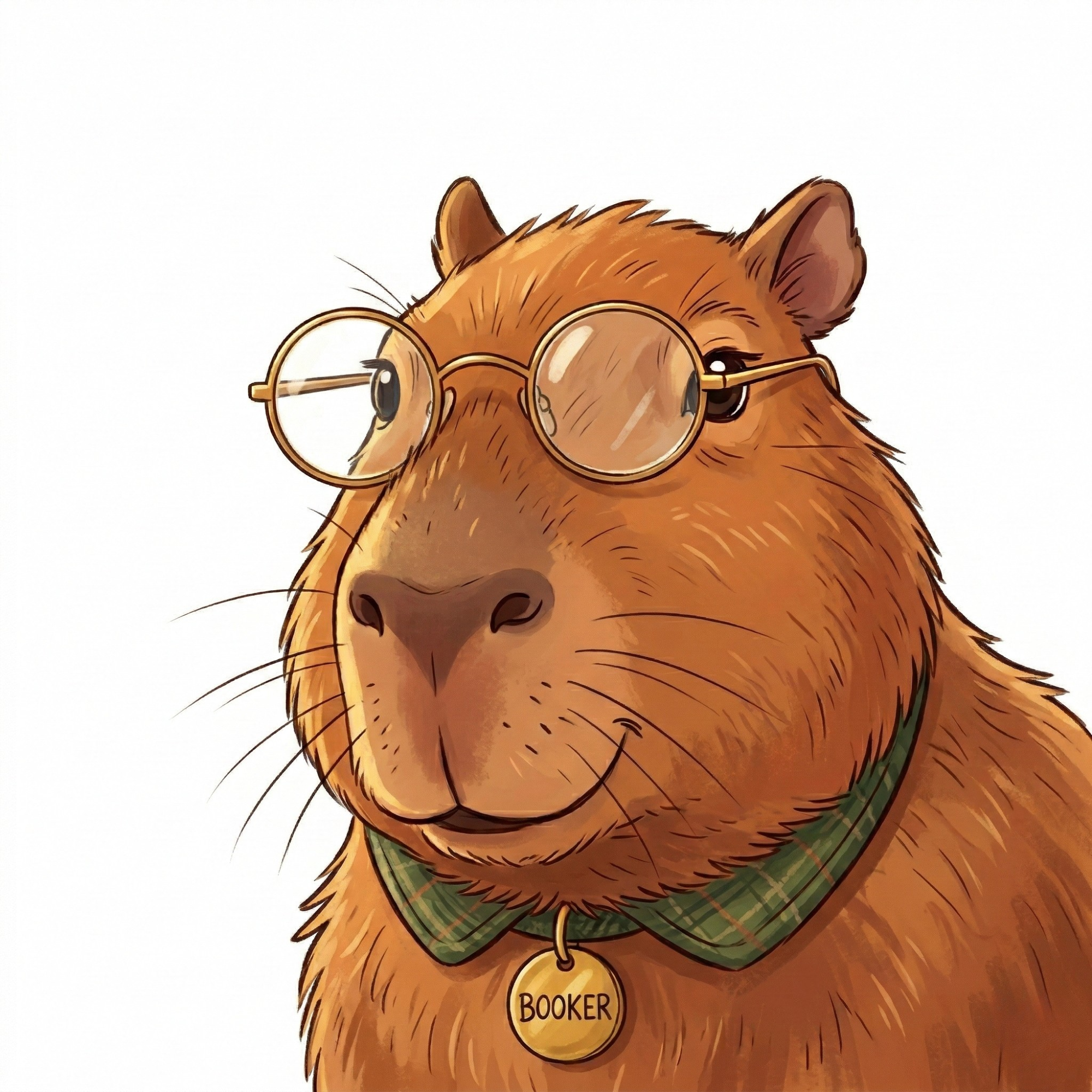A large novel featuring various themes through a multitude of perspectives.
Author: David Foster Wallace
Started: 12 Jan
Finished: 5 Jun (DNF at pg 843 out of 900-something)
Book Reflections
16 Jan
pg 118 - One thing I've noticed while going through this book is that my reading capacity has improved.
This is a big deal.
Since elementary school I've enjoyed reading. But I haven't "leveled up" with it in years.
It's not just an advancement in the ability to cram words before my eyes. "Word load" is up. Line and page transitions (little speedbumps that frustrate the pace of any reader) put less drag on the process - road is paved smoother.
Spot comprehension has increased. This is the ability to frack meaning below word level as I read without stopping to analyze or take breaks.
Because of this, I'm liking Infinite Jest more and more.
15 Jan
New words
dasien (philosophical word) being there
gibbous (astronomy - a lunar body that is between half full and full)
diffraction (physics - spreading out or disruption of waves by an obstacle)
stelliformism (star-shaped, focused on star-shaped)
isomorphic (mathematics - two sets having the same corresponding structures or functions, comparison)
cui bono (Latin - "who benefits?" - rhetorical principle suggesting the perpetrator is the beneficiary of some negative event (legal term)
ken (English (of Scottish origin) - a range of knowledge or understanding)
decoct (English - to extract the flavor or essence of something by boiling it down - used in herbal medicines)
les jeux pour-memes (French - "the game of memes")
gestalt - (German - whole greater than sum of the parts - ref. art, graphic design, literature)
pg 107 (Attachments) "Attachments are of great seriousness. Choose your attachments carefully. Choose your your temple of fanaticism with care."
104 pgs in.
Just discovered the book has a crazy footnotes section in the back.
"Notes and Errata" it's called, add 96 pgs of girth to book's load. There are whole substories in the rear - heavy. Already considering a re-read of this tome.
One thing I'm really getting hammered in from reading this is how to describe characters through action.
I do this already (in a more minimalist fashion) but Wallace is a master at this.
He's great at presenting characters through dialogue and the smallest of foibles. There are some physical descriptions, but many have movement, more focusing on the character's view of the world and events occurring within.
Noticeably absent are internal monologues. Most events play out in real time - present tense - as if being livestreamed and commentated upon as the characters "look in on themselves" in the world.
The effect reality constructing so thorough, you could be sitting there with them.
This is something any serious fiction writer should study, the unarrated omniscient POV that still feels limited by a single focused camera.
14 Jan
65 pages in. This book (while extremely attention-arresting to read) is wildly overrated.
I suspected it would be.
I told my wife it's like a painter who slings various shades of paint at a canvas, places it under gentle haloed light in a single gallery, sells tickets, and calls it "high-art."
Much of the book so far is a collection of disjointed descriptions of characters in various predicaments. Some connect, others don't (at least not apparently.)
The main "narrative" focuses on Hal at various stages of his life. He's a child prodigy who fell into drug-abuse. Many of the scenes describe his paranoia and neuroticism during phases of addiction (which is a major theme of the book.)
Much of the book is written with pretentious prose with Wallace using words like "homolosine-cartography" and "reglet" for color, but often little meaning. These are deliberate choices meant frustrate average readers and elevate himself.
Then of course there's pg 37: a scene that even nearly 30 years ago when it was published would have been viewed outside of literary elite circles - where such inclusions seem to matter little - as racist, minimizing, and cringeworthy.
This is where Wallace imitates a Black ghetto girl's thoughts about an abusive partner and an overall fucked up situation among her mother and other players.
Read it for yourself:


This scene is a spectrum of paint splashed on a white wall. Why was it included?
How could others read it and still consider this man some sort of literary genius?
I'm no social justice warrior. You'll never find me race-baiting or shaming others to behave a certain way toward me because I'm Black, but this is bullshit.
However, I don't blame Wallace for his odd choice to include such a worthless scene in his book.
I blame the society that deified his writing. This was clearly an author who was bred to not just be a writer, but a good writer, perhaps even a famous one.
He achieved both in his relatively short life. But to what end?
Struggling with addiction his entire life (he was in and out of rehab through several periods) and his eventual demise at his own hand - it's clear Wallace fought a never-ending battle with the various demons.
Fame - as much as being a fiction writer could grant -, pressure of brilliance, burden of genius, society's ever-watchful eyes, his own (probably) impossible standards: I assume all of these things drove him often to chemical remedy. Infinite Jest reads like an autobiographical window into Wallace's cynical sight of his advantaged life.
All criticisms aside, I'm still reading.
Main reason is the book is fun.
The characters are colorful, some of the writing is funny (though not as comical as advertised), and the writing is excellent. Even the most pedestrian sentences have a flair of intrigue.
He does this through a combination of word choice, rhythms, alliteration, and other insane self-styled mechanics most modern editors would wring their hands and go complain on Threads over.
In that respect, Wallace is the Eminem of fiction writing.
He was good and he knew it.
As a novelist, I'm lung-deep high on his vapors, absorbing (passively and actively) word clouds. Though the book is no masterpiece, it doesn't matter, I'll smoke the roach to the tip.
I doubt Wallace would have considered it so great.
For he rails against the technology obsessed, pop culture-ruled social order constantly here. The same structure that led his to early addiction and death.
Hard to deny the irony.
13 Jan
There are too many good sentences to highlight or underline. Just have to enjoy the ride
15 Apr - pgs 550 - 552
cathexis
| incomplete public school career |


